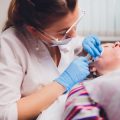1. Understanding Hair Growth Supplements
Hair growth supplements have gained popularity among individuals looking to improve hair thickness, strength, and overall health. These supplements typically contain a blend of vitamins, minerals, and other nutrients that claim to support hair growth and prevent hair loss.
Common Ingredients in Hair Growth Supplements
Most hair growth supplements include ingredients that are believed to nourish the hair follicles and promote healthier hair. Some of the most common ingredients found in these products include:
| Ingredient | Purpose |
|---|---|
| Biotin | Supports keratin production, which strengthens hair and reduces breakage. |
| Collagen | Provides essential amino acids that contribute to hair structure. |
| Zinc | Aids in tissue repair and supports healthy hair follicles. |
| Iron | Helps red blood cells deliver oxygen to hair follicles, promoting growth. |
| Saw Palmetto | Might help block DHT, a hormone linked to hair loss. |
| B Vitamins (B6, B12, etc.) | Play a crucial role in cell metabolism and energy production for hair growth. |
| Amino Acids | The building blocks of protein, which is essential for strong and healthy hair. |
How Hair Growth Supplements Claim to Work
The primary goal of these supplements is to nourish the scalp and hair follicles by providing essential nutrients that may be missing from your diet. Many products claim to work by:
- Nourishing Hair Follicles: Providing vitamins and minerals that support follicle health.
- Improving Scalp Circulation: Enhancing blood flow to the scalp, ensuring proper nutrient delivery.
- Reducing Hair Thinning: Strengthening strands and reducing breakage or shedding.
- DHT Blockage: Some supplements include ingredients like saw palmetto that may reduce DHT levels, which is linked to hair loss.
- Pumping Up Keratin Production: Certain vitamins help boost keratin levels, which enhances hair texture and strength.
The Popularity of Hair Growth Supplements
The appeal of these supplements lies in their promise of healthier, fuller-looking hair without requiring medical treatments or topical applications. However, while many people report positive results, individual experiences can vary based on factors such as genetics, diet, and overall health.
The key takeaway is that while these supplements can provide beneficial nutrients for your hair, it’s important to understand their potential side effects before adding them to your routine. In the next section, we’ll explore some of the possible side effects associated with taking hair growth supplements.
2. Potential Side Effects on the Scalp and Hair
While hair growth supplements are designed to promote healthier, fuller hair, some users may experience unexpected side effects on their scalp and hair. These reactions can vary depending on individual sensitivities, the ingredients in the supplement, and how the body responds. Below are some potential side effects you should be aware of.
Excessive Hair Growth
One common side effect of hair growth supplements is excessive hair growth, also known as hypertrichosis. This can occur not only on the scalp but also in areas where you may not want additional hair, such as the face, arms, or back. Ingredients like biotin and certain herbal extracts can sometimes stimulate overall hair growth, leading to unwanted results.
Scalp Irritation
Some individuals may experience scalp irritation, including redness, itching, or flaking. This reaction could be due to an allergy to specific ingredients or an increase in oil production caused by the supplement. If you notice persistent irritation, it might be worth reviewing the product’s ingredient list and consulting a dermatologist.
Changes in Hair Texture
Hair growth supplements can sometimes alter the texture of your hair. Some people report that their hair becomes coarser, while others notice a softer or thinner feel. These changes may result from how the supplements affect keratin production or moisture levels in the hair shaft.
Common Scalp and Hair Side Effects
| Side Effect | Description |
|---|---|
| Excessive Hair Growth | Increased hair growth on areas beyond the scalp, such as face or arms. |
| Scalp Irritation | Redness, itching, or flaking due to ingredient sensitivity or increased oil production. |
| Changes in Hair Texture | Hair becoming coarser, softer, or thinner due to altered keratin production. |
How to Manage These Side Effects
If you experience any of these side effects while taking hair growth supplements, consider adjusting your dosage or switching to a different product with fewer active ingredients. Additionally:
- If experiencing excessive hair growth: Reduce your intake or consult a doctor about alternative options.
- If dealing with scalp irritation: Use gentle shampoos and avoid other harsh hair treatments.
- If noticing texture changes: Hydrate your hair with conditioning treatments and monitor further changes.
If symptoms persist or worsen, its best to seek advice from a healthcare professional to determine whether continuing supplementation is right for you.
![]()
3. Digestive Issues and Other Internal Reactions
While hair growth supplements promise thicker, healthier hair, they can sometimes cause digestive issues or other internal reactions. Certain ingredients in these supplements may not sit well with everyone, leading to discomfort or even allergic responses.
Common Digestive Side Effects
Some hair growth supplements contain high doses of vitamins and minerals that may upset your stomach. Here are some common digestive issues you might experience:
| Ingredient | Potential Digestive Issue |
|---|---|
| Biotin | Nausea, cramping |
| Zinc | Stomach pain, diarrhea |
| Iron | Constipation, nausea |
| Saw Palmetto | Indigestion, acid reflux |
Nausea and Upset Stomach
Certain vitamins, such as biotin and zinc, are more likely to cause nausea when taken on an empty stomach. If you find yourself feeling queasy after taking a supplement, try consuming it with food to reduce irritation.
Possible Allergic Reactions
Apart from digestive issues, some individuals may experience allergic reactions to specific ingredients in hair growth supplements. Symptoms can include:
- Skin rashes or itching
- Dizziness or shortness of breath
- Swelling of the face, lips, or tongue
If you suspect an allergic reaction after taking a supplement, discontinue use immediately and consult a healthcare professional.
4. Hormonal Imbalances and Their Impact
Hair growth supplements often contain ingredients like biotin, collagen, or even hormone-affecting compounds such as saw palmetto. While these can support hair health, they may also interfere with the bodys natural hormonal balance. This disruption can lead to unwanted side effects, especially in individuals who are sensitive to hormonal changes.
How Hair Growth Supplements Affect Hormones
Some supplements work by influencing hormone levels, particularly DHT (dihydrotestosterone) and estrogen. While this can promote hair growth, it may also cause imbalances that trigger certain side effects.
Potential Side Effects of Hormonal Disruptions
| Side Effect | Description |
|---|---|
| Acne Breakouts | Excess biotin can increase sebum production, leading to clogged pores and breakouts. |
| Mood Swings | Hormonal fluctuations may affect neurotransmitters, leading to irritability or mood changes. |
| Menstrual Irregularities | Supplements that impact estrogen or testosterone levels could cause changes in menstrual cycles. |
| Increased Facial Hair (in Women) | Certain ingredients that block DHT might lead to an imbalance, potentially triggering excess facial hair growth. |
Who Should Be Cautious?
If you have a history of hormonal conditions such as polycystic ovary syndrome (PCOS), thyroid disorders, or acne-prone skin, you may want to consult with a healthcare professional before taking hair growth supplements. Even small hormonal shifts can have noticeable effects on your body.
How to Minimize Risks
- Monitor Your Bodys Response: Pay attention to any new symptoms after starting a supplement.
- Avoid Over-Supplementation: Taking more than the recommended dosage can increase the likelihood of side effects.
- Choose Hormone-Free Options: Look for supplements that focus on vitamins and minerals rather than hormone-altering ingredients.
- Consult a Doctor: If you experience persistent side effects, seek medical advice to determine if the supplement is right for you.
While hair growth supplements can be beneficial, its important to be aware of their potential impact on hormonal balance. Understanding these effects will help you make informed choices about your hair care routine.
5. Medication Interactions and Health Risks
Before adding hair growth supplements to your routine, its essential to consider how they might interact with any medications youre currently taking or impact existing health conditions. While these supplements can offer benefits, they may also pose risks if not used correctly.
How Hair Growth Supplements Can Interact with Medications
Many hair growth supplements contain vitamins, minerals, and herbal extracts that can affect how your body processes medications. Some ingredients may enhance or reduce the effectiveness of certain drugs, leading to unintended side effects.
Common Medication Interactions
| Supplement Ingredient | Potential Interaction | Affected Medications |
|---|---|---|
| Biotin | Can interfere with lab tests and affect medication monitoring | Thyroid medications, heart medications |
| Saw Palmetto | Might thin the blood, increasing bleeding risk | Blood thinners, aspirin |
| Zinc | Can reduce absorption of antibiotics | Certain antibiotics (e.g., tetracyclines) |
| Iron | Might interfere with thyroid hormone absorption | Levothyroxine (thyroid medication) |
Health Risks to Consider
If you have pre-existing health conditions, some hair growth supplements could worsen your symptoms or trigger unwanted reactions. For example:
- Liver or Kidney Issues: High doses of certain vitamins (like vitamin A) can strain liver and kidney function.
- Hormonal Imbalances: Ingredients like saw palmetto may alter hormone levels, which could be problematic for those with hormonal disorders.
- Digestive Problems:
The Importance of Consulting a Healthcare Provider
The best way to ensure your safety is to consult a healthcare provider before starting any new supplement. A doctor or pharmacist can help you determine whether a product is safe for your specific health needs and medication regimen. This simple step can prevent harmful interactions and unwanted side effects.
6. How to Choose the Right Supplement and Minimize Risks
Selecting a hair growth supplement can feel overwhelming with so many options on the market. However, choosing the right one and taking precautions can help you avoid unwanted side effects. Here’s what you should consider when picking a supplement.
Check the Ingredients List
Always read the label carefully. Look for scientifically backed ingredients like biotin, collagen, zinc, and folic acid. Avoid supplements with excessive fillers, artificial additives, or unregulated herbal extracts that may cause adverse reactions.
Common Ingredients in Hair Growth Supplements
| Ingredient | Benefits | Potential Side Effects |
|---|---|---|
| Biotin | Supports keratin production for stronger hair | Skin breakouts, digestive issues |
| Collagen | Aids in hair structure and strength | Mild digestive discomfort |
| Zinc | Helps regulate hair follicle function | Nausea, stomach upset if taken in excess |
| Saw Palmetto | Might help reduce hair loss by blocking DHT | Dizziness, digestive issues in some people |
Avoid Overdosing on Nutrients
Taking too much of certain vitamins and minerals can lead to side effects rather than benefits. For example, excess vitamin A has been linked to hair thinning instead of growth. Stick to recommended daily values unless advised otherwise by a healthcare professional.
Select Reputable Brands
Choose brands that are third-party tested for quality and safety. Look for certifications from organizations such as the U.S. Pharmacopeia (USP), NSF International, or ConsumerLab.com. This ensures that the supplement contains what it claims without harmful contaminants.
Monitor Your Body’s Response
Your body may react differently to supplements, so its essential to pay attention to any changes after starting a new one. If you experience unusual symptoms like nausea, headaches, or skin rashes, stop taking the supplement and consult a healthcare professional.
Signs You Should Stop Taking a Supplement Immediately:
- Persistent stomach pain or nausea
- Dizziness or headaches that don’t go away
- Skin reactions like rashes or itching
- Sensitivity or allergic reactions (swelling, difficulty breathing)
- Hair shedding increases instead of improving
The Bottom Line: Prioritize Safety and Effectiveness
The best way to minimize risks is to choose high-quality supplements backed by research, follow dosage guidelines, and monitor how your body responds. When in doubt, consult a healthcare provider before starting any new supplement regimen.


